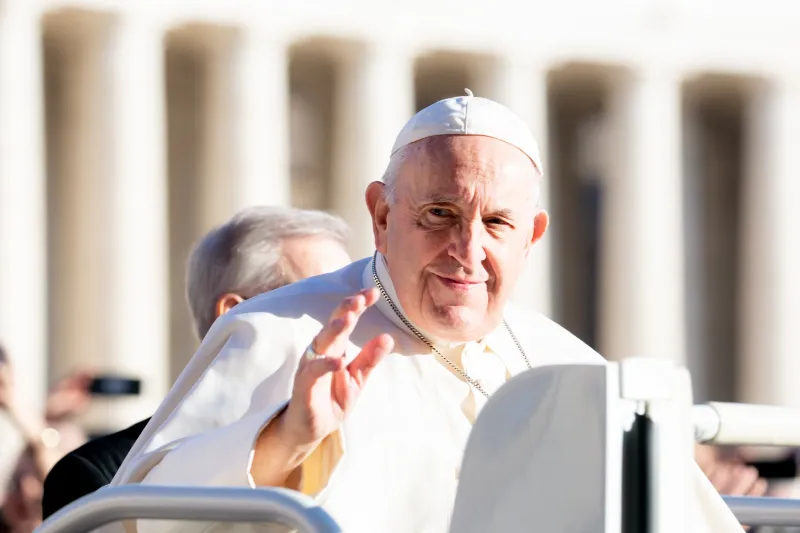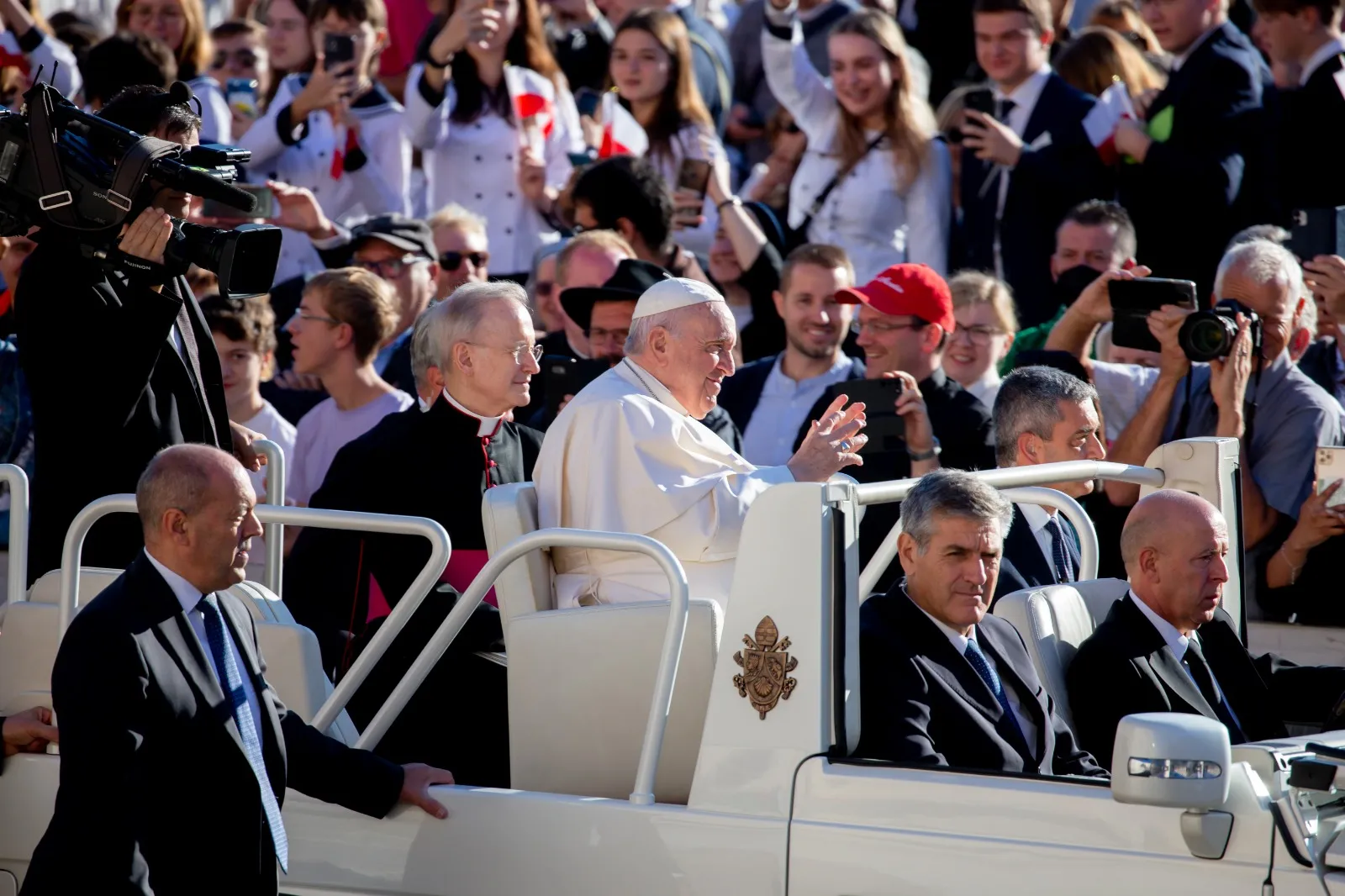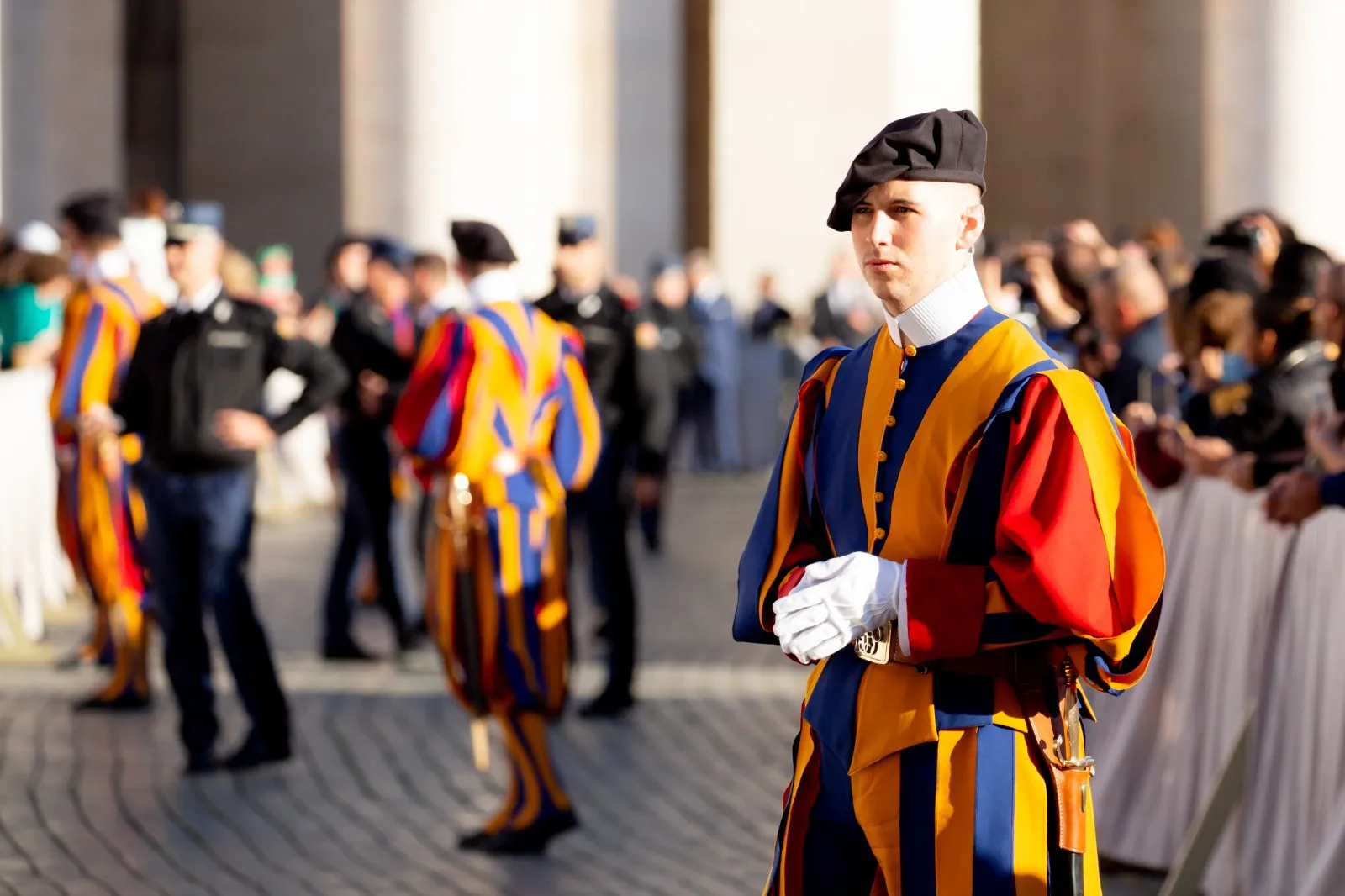
Washington, D.C. Newsroom, Jun 29, 2023 / 09:24 am (CNA).
Archbishop George Leo Thomas of the newly created Archdiocese of Las Vegas formally received his pallium, a vestment symbolizing his authority in the Church, from Pope Francis in a solemn Mass at St. Peter’s Basilica on Thursday.
Thomas, 73, received the pallium alongside 29 other new metropolitan archbishops on the solemnity of Sts. Peter and Paul.
During the Mass, the pope blessed the pallia that will soon be placed on the shoulders of the 32 archbishops appointed this year across the world.

In his homily, Francis called on the new archbishops to “be apostles like Peter and Paul” and to “be disciples in following and apostles in preaching.”
“Brothers and sisters, we are celebrating Peter and Paul,” the pope said. “They answered that essential question in life — ‘Who is Jesus for me?’ — by following him as his disciples and by proclaiming the Gospel.”
“It is good for us to grow as a Church in the same way, by following the Lord, constantly and humbly seeking him out. It is good for us to become a Church that is also outgoing, finding joy not in the things of the world but in preaching the Gospel before the world and opening people’s hearts to the presence of God,” Francis added.
In concluding his homily, Francis instructed the archbishops to “bring the beauty of the Gospel everywhere, together with all the People of God.”
The Mass was also attended by about 60 Las Vegas Catholics and other family members and pilgrims.

What is the pallium?
A white woolen band with six black silk crosses worn around the neck, the pallium is a symbol of an archbishop’s special share in the pope’s pastoral authority as well as his responsibility to shepherd his flock.
The pallium, which is also worn by the pope, further symbolizes the bond and unity between the pope and the archbishop. The pope’s pallium has red crosses instead of black.
Though traditionally archbishops used to be invested with the pallium by the pope in St. Peter’s, Francis changed that practice in 2015 so that the pallium is now placed on archbishops’ shoulders in their home archdioceses.
Pope Francis blessed the pallia for the new Metropolitan Archbishops on the feast of Sts Peter and Paul at the Vatican. The Pope urged them to follow the footsteps of Peter and Paul, becoming apostles in preaching the Gospel and bringing its beauty to all people. pic.twitter.com/frOhovnlWF
— EWTN Vatican (@EWTNVatican) June 29, 2023
Thomas will be invested with the pallium by the apostolic nuncio to the U.S., Archbishop Christophe Pierre, in another special Mass on Oct. 2 at Guardian Angel Cathedral, the mother church of the Archdiocese of Las Vegas.
In attendance at that Mass will be the various other bishops under the authority of Thomas as metropolitan archbishop.

America’s newest archdiocese
In May, the pope elevated Las Vegas to the status of a metropolitan archdiocese, creating a new ecclesiastical province.
As archbishop, Thomas will oversee not only his archdiocese but will also bear responsibility for the other dioceses within his metropolitan region.
There are 35 archdioceses in the United States, including the Archdiocese for the Military Services, USA, and two Eastern Catholic archdioceses.
The Archdiocese of Las Vegas serves more than 620,000 Catholics and “hundreds of thousands of tourists,” according to the cathedral’s website.
If you value the news and views Catholic World Report provides, please consider donating to support our efforts. Your contribution will help us continue to make CWR available to all readers worldwide for free, without a subscription. Thank you for your generosity!
Click here for more information on donating to CWR. Click here to sign up for our newsletter.









Serving the people of God is a meaningful ministry. Wishing Archbishop George Leo Thomas and the other brand new metropolitan archbishops strength and courage.